The World Keeps Turning: A musical transport
|
Published: 03-02-2025 8:22 PM
Modified: 03-28-2025 9:00 PM |
In an ongoing quest to find some beauty and grace in a troubled and troubling world, I was recently privileged — with a capital “P” — to attend a performance by the cellist Yo-Yo Ma. Full disclosure: I seldom listen to classical music, have no experience with other cellists, and am eminently unqualified to critique musical performances, but I have studied reviews by others more experienced in the field.
Ma is certainly the most famous classically based musician today, an artistic success (120-plus albums, 19 Grammys), and a respected presence in music and politics worldwide. He performed at the age of 7 for JFK and for eight presidents since, at the rebuilt Notre Dame cathedral, and in 2020 was named one of Time magazine’s 100 most influential people.
He often connects his music “with the largest forces of nature,” and his cello voiced a wide range of sounds and effects: staccato fits and starts from plucking strings that brought images of bees, hummingbirds and dragonflies; flights up and down the scales that I imagined as birds swooping and diving; and deep, sustained bass notes that could have been the voices of ancient, giant sequoia trees.
He began with parts of Bach suites which first made him famous, but soon mixed in songs so familiar to popular music and culture fans that some gave in to the temptation to sing along: e.g., “Aud Lang Syne” to allow an updated New Year’s resolution; “Danny Boy” and “Somewhere Over the Rainbow” as homage to our pain and isolation during the pandemic. There were also new and experimental compositions: an accompaniment to the eerie, plaintive recorded songs of humpback whales, and a duet with a recorded piano to complement stunning new video images of the solar system from the Webb Space Telescope.
As a master performer, he inspired a full range of emotions as well: occasional laughter at an unexpected stroke of his bow or plucked string; awed silence at the majesty of great composers interpreted by a great performer; near-tears at the melancholy refrains of “Over the Rainbow” and “Danny Boy”; and soaring gratitude and hope for the shared humanity at the center of his work. I would challenge anyone to attend, and really listen to, a live performance and remain unmoved.
But the skill that brought his performance to the level of transcendence, for me, were his words. One website suggests that “there’s always a message in his music,” and he proposes that “philosophy, arts, and sciences belong together as equal partners in this thing we call culture.” He answered questions from young cello students before the performance, then continued his easy monologue between songs like a seasoned nightclub performer or veteran folk or blues singer.
He spoke of growing up during the dark times after World War II when the scale of destruction and planned genocide were just becoming clear, but accepting the realization that instead of “never again,” the insanity and cruelty of war happens “over and over again.” He noted common pains during the pandemic: dying patients isolated from their families, and our helpless, bewildered feelings about our experiences. The music that he performed then and now is proof of another writer’s assessment: “If music can heal, Yo-Yo Ma is the doctor.”
Between songs, he describes nature’s power as both “terrifyingly beautiful” and unfathomably cruel. At the same time, he celebrates the vagaries and wonders of human achievement through timeless music and flights of inspiration.
Article continues after...
Yesterday's Most Read Articles
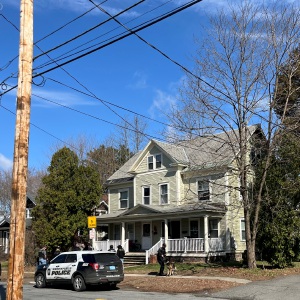 Two arrested on drug trafficking charges in Greenfield
Two arrested on drug trafficking charges in Greenfield
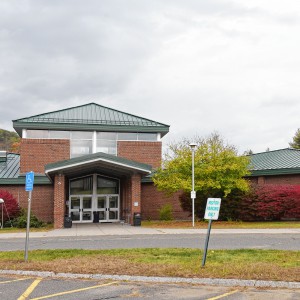 Berkshire DA says no crime occurred in student-officer relationship at Mohawk Trail
Berkshire DA says no crime occurred in student-officer relationship at Mohawk Trail
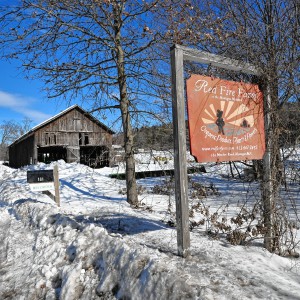 Four Red Fire Farm workers arrested as part of ICE operation in Springfield
Four Red Fire Farm workers arrested as part of ICE operation in Springfield
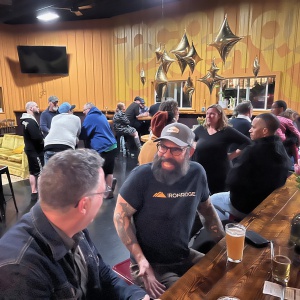 Incandescent Brewing now open in Bernardston
Incandescent Brewing now open in Bernardston
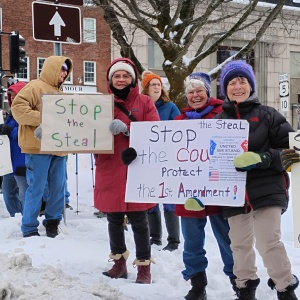 Local ‘Hands Off!’ standouts planned as part of national effort
Local ‘Hands Off!’ standouts planned as part of national effort
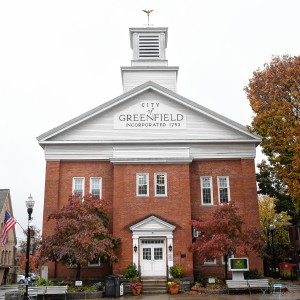 Proposed ordinance would make Greenfield a ‘sanctuary city’ for trans, gender-diverse people
Proposed ordinance would make Greenfield a ‘sanctuary city’ for trans, gender-diverse people
I wanted to end this column with the famous quotation, “Music can soothe the savage beast” with me taking the part of the savage beast. But the accurate quotation, from a 1697 poem, is “Music hath charms to soothe the savage breast, to soften rocks or bend a knotted oak,” which I find even more eloquent than the misquoted first line. I believe that Yo-Yo Ma’s music could soften any rocks I might sit or sleep on, and lighten my work if I needed to shape a gnarled oak. His music took me to a celestial place without ignoring the cruelties surrounding us.
Ma famously played his cello in protest in front of the Russian embassy after the invasion of Ukraine, as well as deep underground at one of the most advanced scientific sites in the world, the Large Hadron Collider, which studies “the fundamental particles that make up all matter.” He manages to bridge the gaps between art, science, and even politics, and I felt privileged to receive one of his gifts to the world.
Allen Woods is a freelance writer, author of the Revolutionary-era historical fiction novel “The Sword and Scabbard,” and Greenfield resident. His column appears regularly on a Saturday. Comments are welcome here or at awoods2846@gmail.com.






 My Turn: Energizing a school — and a community
My Turn: Energizing a school — and a community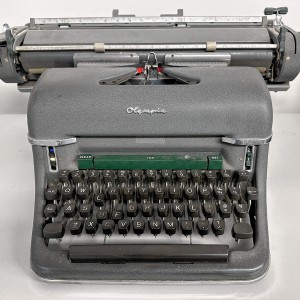 Guest columnist Liz Brown: Abortion care is health care
Guest columnist Liz Brown: Abortion care is health care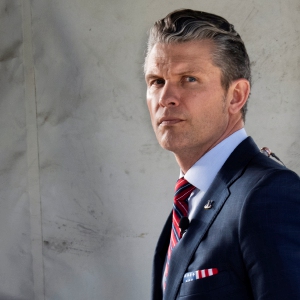 Sam Michel: Promises made, promises kept
Sam Michel: Promises made, promises kept Paul Gallo: National infrastructure upgrade program would ‘make America great’
Paul Gallo: National infrastructure upgrade program would ‘make America great’
